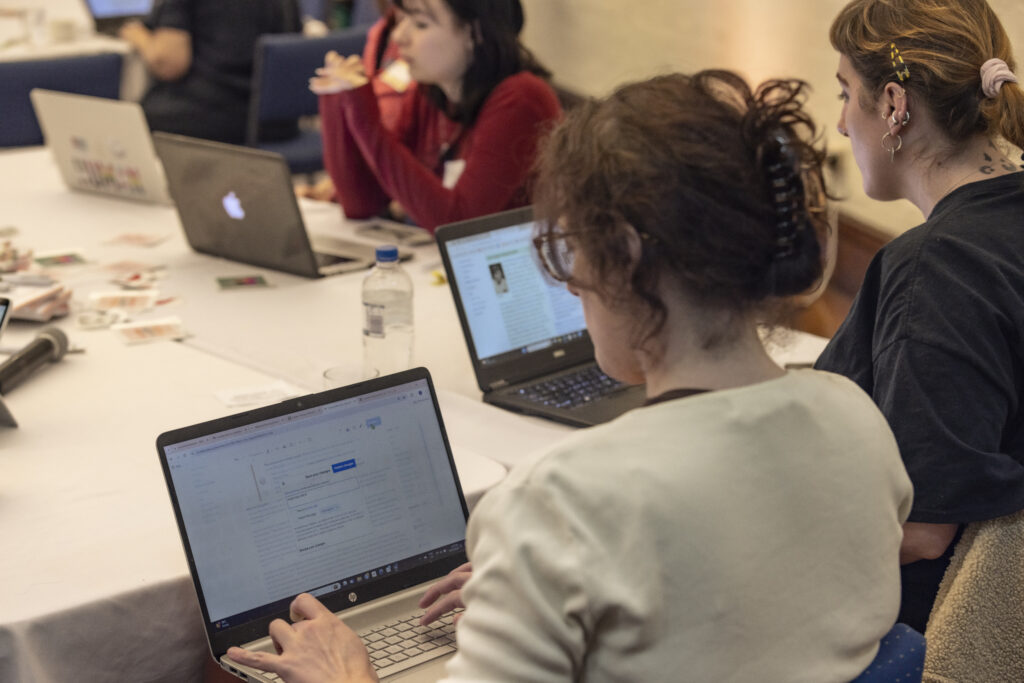Every day, about 60 people go onto Sam Mostyn’s Wikipedia page. You may know her now as the Governor-General of Australia, but even before her appointment, she had dozens of accolades to her name. Mostyn was a member of the Climate Council, the president of Chief Executive Women, she even has the AFLW “Best and Fairest” medal named after her: The Mostyn Medal.
You can find out all this from a quick Google search to go to Sam Mostyn’s Wikipedia page in a matter of seconds.
But this page wouldn’t exist without climate scientist and gender equality activist, Dr Melanie Zeppel. She wrote Sam Mostyn’s Wikipedia page about four years ago – hers, and more than 100 other pages on prominent women in science, technology, engineering, mathematics and medicine (STEMM).
“I’ve been working as a scientist for 25 years in climate change, and I’ve got two daughters, so I’m quite passionate about climate change and encouraging women in STEMM,” Dr Zeppel said.
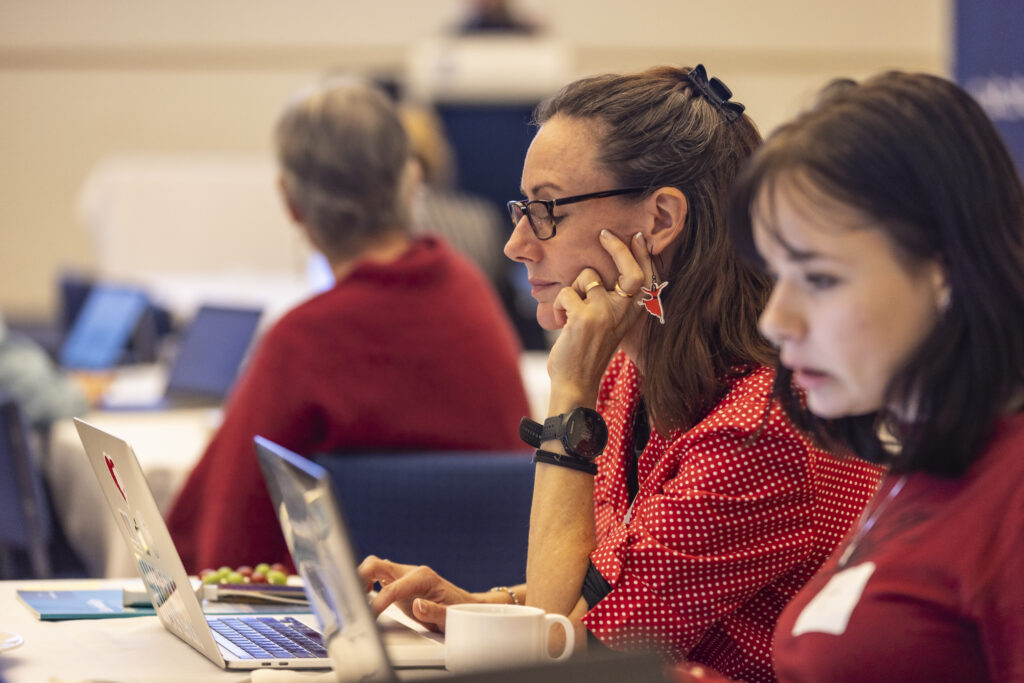
Last week, Dr Zeppel joined about 50 other women and allies at the University of Sydney’s Women’s College to write and edit Wikipedia pages for women in STEMM who are making moves and paving the way for generations to come.
Over two days, Franklin Women created 31 new articles, improved 91 articles, and added almost 41,000 words to Wikipedia bios on women in STEMM.
As Franklin Women’s founder and director Melina Georgousakis described it, the Wikipedia Edit-A-Thon is writing the history of the future.
“If you think about archived records of history – paper clippings, encyclopedias, journals, all that sort of stuff – that was in the written sense. That’s not what tomorrow’s history is going to be – it’s going to be looking at what was online,” Georgousakis said.
“People are going to be looking at this in 50 years time – and it’s not going to tell us the truth. So it’s up to us to do so.”
Wikipedia: the challenges, the risks, the opportunities
Two words appeared on Wikipedia when the website went live in January 2001: “Hello world.”
It was founded as a free, not-for-profit organisation and embodied what was once the spirit of the internet: collaboration and the freedom of knowledge. Anyone can be a “Wikipedian” – that is, anyone can contribute to, write or edit a Wikipedia page.
Caddie Brain began her time as a Wikipedian working as a journalist in the Northern Territory – and once she started, she couldn’t stop.
“In my mind, it’s absolutely one of the greatest volunteer movements of all time,” Brain said.
“Many people still consider it to be the ‘last best place on the internet’ – that’s the term Australian journalist Richard Cooke uses to describe it – because it’s still holding on to that early ethos on the internet that was about democracy, sharing and levelling.”

Not every person is eligible to have a Wikipedia bio written about them – you have to meet certain notability requirements and have sources to back up claims of notability: for instance, media appearances, awards, published journal articles and other forms of recognition.
Perhaps this is the reason that less than 20 per cent of Wikipedia pages that profile individuals are on women, Franklin Women’s founder and director Melina Georgousakis said.
“When women aren’t represented at conferences, or they’re less cited in their work, they’re not quoted in the media, they’re not getting the awards,” Georgousakis said.
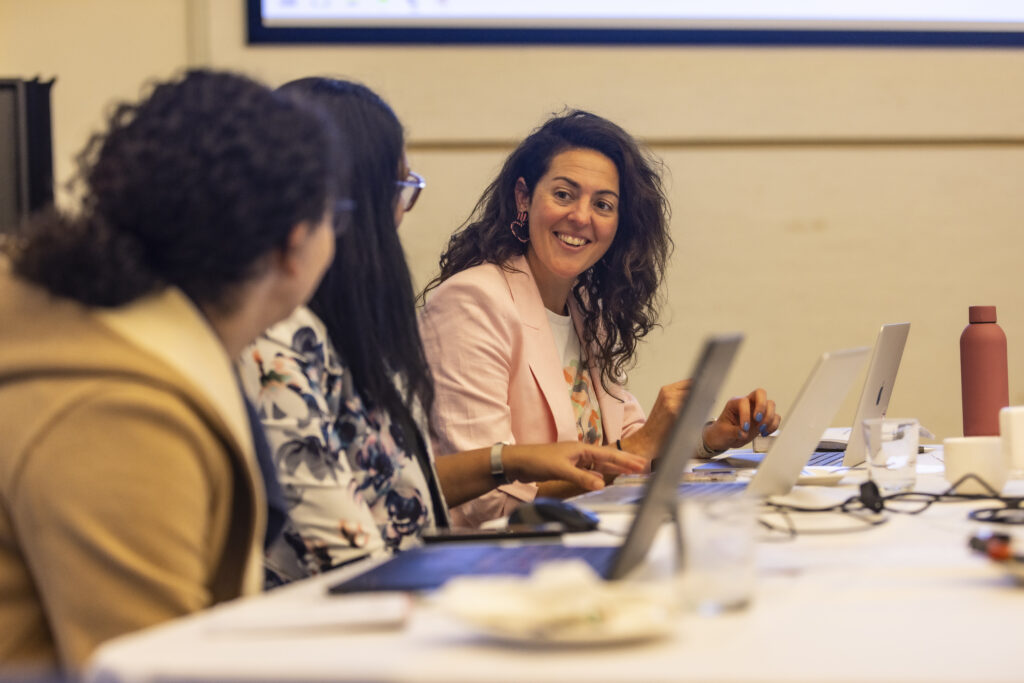
It’s even harder to find Wikipedia profiles on prominent women in STEMM, when just 12 per cent of the STEMM workforce is made up of women, according to the Diversity in STEM review.
“What’s really unique about health and medicine as one of the STEM disciplines is we have no trouble getting women into these careers, but unfortunately they’re lost once we get them into the profession,” Georgousakis said.
“They either hit that glass ceiling, or they’re just pushed out of the sector.”
But there’s another problem with Wikipedia: most of the editors are men. In fact, only about 13 per cent of Wikipedia editors are women, according to Franklin Women.
“Wikipedia really reflects the bias in society and in our sector,” Georgousakis said.
What are Wikipedia edit-a-thons?
Some Wikipedians and advocates around the world are hoping to boost the number of women profiled on Wikipedia, through Wikipedia Edit-A-Thons.
It’s a worldwide phenomenon that can happen with as little as one person, to as many people as you can fit in one room.
Franklin Women’s edit-a-thon was inspired by British scientist Dr Jess Wade, who has been writing Wikipedia pages on women in STEMM every day since 2017.
The first Franklin Women edit-a-thon was in 2019, and this year, they had about 50 women and allies from Australia’s STEMM sector come together to “write the history of the future”. They were each allocated one prominent woman in STEMM to profile on a Wikipedia page.
“They’re taking half a day out of their work week. Yeah, they’re learning a new skill, but they are literally doing it so that someone else can receive the recognition. That’s something special,” Georgousakis from Franklin Women said.
One Wikipedian at the Edit-A-Thon in Sydney was Dr Astrid Rodriguez-Acevedo. She has a PhD in genetics, but also runs a grassroots organisation called Huitaca, a not-for-profit supporting Latin American women in science.
Dr Rodriguez-Acevedo, who had travelled from Brisbane to attend the event, was editing the Wikipedia bio for Dr Nubia Muñoz, a researcher from Colombia who helped with the development of the HPV vaccine.
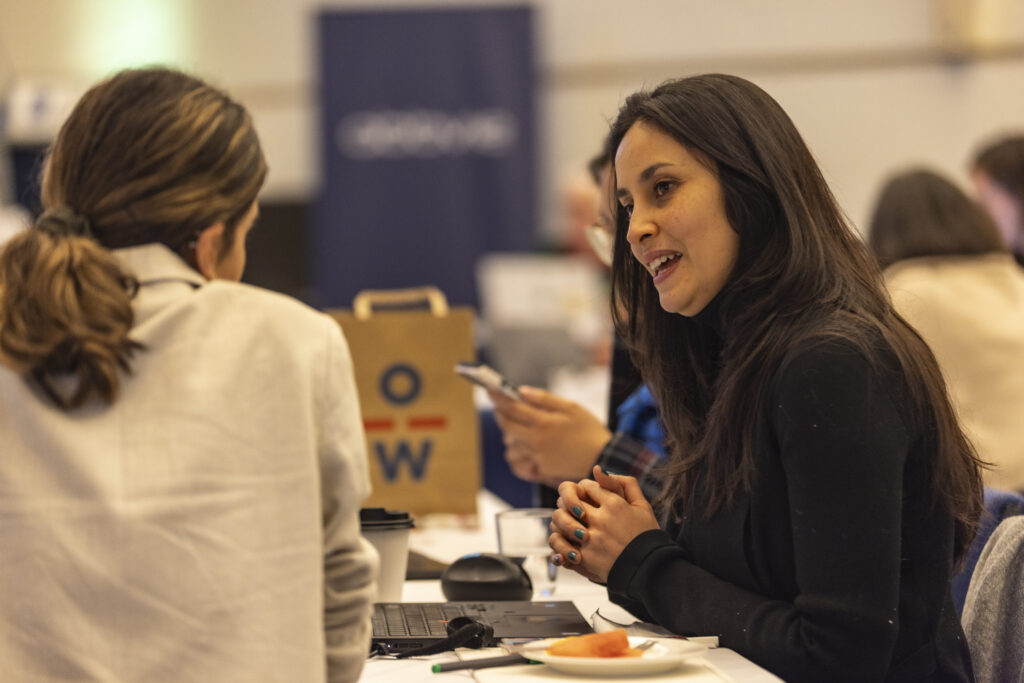
Not many people know there was a Latina scientist who contributed to the HPV vaccine – in fact, it’s reflective of just how male-dominated STEMM is in Latin America, and how much harder it is for Latin American scientists to be recognised in English-speaking countries, especially if they are women.
But that’s why Dr Rodriguez-Acevedo and her organisation Huitaca exist. They even have their own version of a Wikipedia edit-a-thon: they call it Huikipedia.
While she admits progress in gender equality is slow going in Latin America, every bit of progress counts.
“It doesn’t matter if it doesn’t get the recognition right now – it still needs to be done,” Dr Rodriguez-Acevedo said.
Like mother, like daughter
At Franklin Women’s Wikipedia Edit-A-Thon, Dr Melanie Zeppel wrote her 100th page on a prominent woman in STEMM.
She’s been doing this since 2019 after attending Franklin Women’s first event, where she too became addicted to the thrill of lifting up other women. Throughout her time as a Wikipedian, Dr Zeppel has written the bios of the Governor-General Samantha Mostyn, 2024 Australian of the Year Professor Georgina Long, and climate activist Anjali Sharma.
“If something crappy happens in my day, I get a real buzz from elevating another person,” Dr Zeppel said.
The event was extra special for Dr Zeppel this year, as her daughter Bella came along for the first time.
“I love meeting like-minded women, and being able to talk about some of the issues like women’s representation in STEM, and just meet women who are passionate about feminism,” Bella said.
While she was happy to be there with her mum, Bella, a forensic psychology student, said it was less of a mother-daughter activity, and more of an opportunity to simply be in a room full of “intelligent women”.
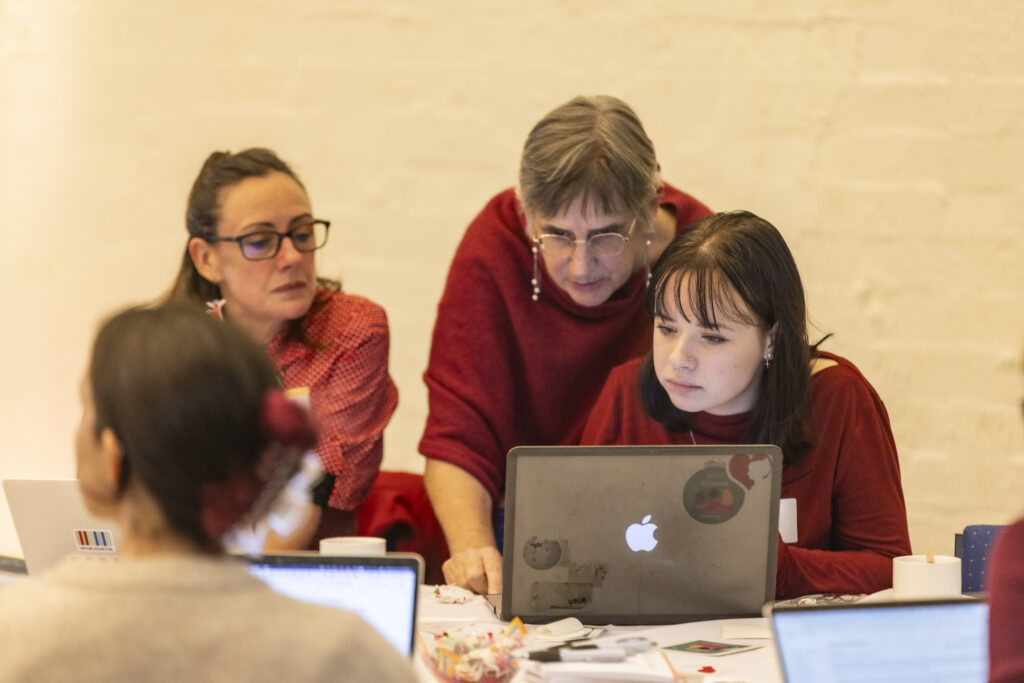
“My mum introduced me to this space of women who actually wanted to take time out of their day just to sit and write Wikipedia pages about women,” Bella said.
“It’s been fun to do it with my mum, but I don’t feel like I’m doing it just with mum – I feel like I’m doing it with all women.
“I like to imagine that one day, one of these women will just Google themselves, and they’ll see that someone wrote a Wikipedia page about them.”
*Featured image – Credit: Cain Cooper

